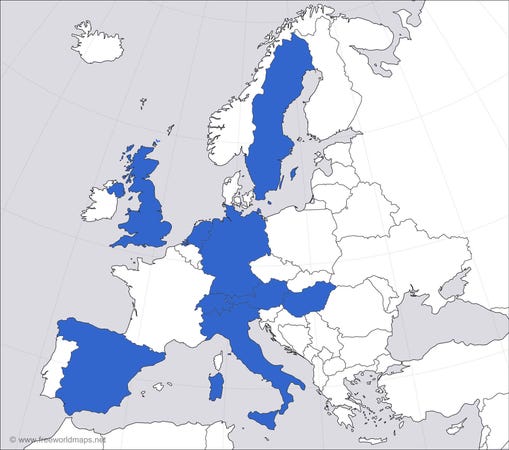Beneficiaries
Professor Marianne Verhaar, MD, PhD
UMC Utrecht, Utrecht, The Netherlands
Professor Verhaar is the main applicant and coordinator of the CLEVER project. She is the head of the department of Nephrology and Hypertension of the UMC Utrecht and chair of the UMC Utrecht Regenerative Medicine and Stem Cells focus area. She has great experience with clinical trials for regenerative medicine and coordination of large national and international research consortia.
Bas W.M. van Balkom, PhD
UMC Utrecht, Utrecht, The Netherlands
Dr. Bas van Balkom is the initiator of the ITN-CLEVER action. Dr van Balkom is an expert in linking EV content to function, and, as Scientific Councilor, will be tightly involved in the coordination of CLEVER.
Professor Dominique P.V. de Kleijn, PhD
UMC Utrecht, Utrecht, The Netherlands
Professor de Kleijn is expert in EV cardiovascular biomarkers, EV therapy and heads the large animal (eg pig) facility for research, training and education. He published 200 scientific papers and h-index of 70.
Professor Bernd Giebel, PhD
Universitätsklinikum Essen, Essen, Germany
Dr Bernd Giebel is an expert in stem cells, developmental biology and extracellular vesicles. He was involved in the succesful treatment of a Graft versus Host disease patient using extracellular vesicles from Mesenchymal Stem Cells.
Professor Maria Felice Brizzi, MD, PhD
University of Turin, Turin, Italy
Professor Camussi is professor of nephrology and has great interest in kidney stem cells and extracellular vesicle therapies. Her group, together with Prof Giovanni Camussi, published several articles describing the succesful treatment of different kidney disease using mesenchymal stem cell-derived extracellular vesicles.
Professor Edit Buzàs
Semmelweis University, Budapest, Hungary
The major research areas of the Extracellular Vesicle Research Group is the role of post-synthetic protein- and lipid modifications (e.g. glycosylation, citrullination and oxidation) in the development of (auto)immune response (with special focus on rheumatoid arthritis). The other major research field of the group is the investigation0 of the contant and composition of cell-derived membrane vesicles (exosomes, microvesicles and apoptotic bodies).
Francesc Borras, PhD
Germans Trias I Pujol Research Institute, Barcelona, Spain
Dr Francesc Borras and Dr Marcella Franquese perform research on Exosomes and Extracellular Vesicles as new platforms for treatment and diagnosis of kidney diseases.
Professor Dirk Strunk, PhD
Paracelsus Medizinische Privatuniversitat, Salzburg, Austria
Professor Strunk is director of the Institute of Experimental and Clinical Cell Therapy, Paracelsus Medizinische Privatuniversitat in Salzburg, Austria. He has an extensive track record in stem cell biology, and studies the use of mesenchymal stem cells (MSC), endothelial colony-forming progenitor cells (ECFC) and induced pluripotent stem cells (iPSC) for their clinical use in regenerative medicine.
Professor Willem Stoorvogel, PhD
Utrecht University, Utrecht, The Netherlands
Prof Willem Stoorvogel is one of the founding fathers of EV research. He co-authored the first paper that described a functional role for exosomes, thereby increasing their status from "cellular debris" to "important mediators of cellular communication". Specialized in immunology, Prof Stoorvogel will explore the immunological aspects of EV therapy.
Dr Samir El-Andaloussi
Karolinska Institutet, Stockholm, Sweden
Dr. Samir El-Andaloussi is the leader of exosome (EV) research at the Department of Laboratory Medicine (LAMED) of the prestigious Karolinska Institutet in Stockholm, Sweden.His research interests are the characterization and application of biological nanovesicles, exosomes, for drug delivery and the development of novel oligonucleotide-based drugs to interfere with gene expression.
Miltenyi Biotec GmbH
Bensberg, Germany
For almost 30 years, Miltenyi Biotec has played an important role in the design, development, manufacture, and integration of products that empower the advancement of biomedical research and enable cell and gene therapy. Their MACS platform is weidely used for the isolation and analysis of sepcific cell types and extracellular vesicles.
Lonza AG
Basel, Switzerland
With more than a century of experience, Lonza has the unique capability to connect biotech expertise with fine chemical know-how to meet some of the greatest challenges in life sciences. Especially cell-culture-related knowledge and expertise will be used to come to the therapeutic EV product
TissUse GmbH
Berlin, Germany
TissUse has developed a unique, proprietary and patent-protected “human-on-a-chip” technology platform to accelerate the development of pharmaceutical, chemical, cosmetic, and personalized medical products. This technology – for the first time ever – provides preclinical insight on a systemic level using human tissue and enables the direct prediction of effects of chemicals and their metabolism on near real-life models.

